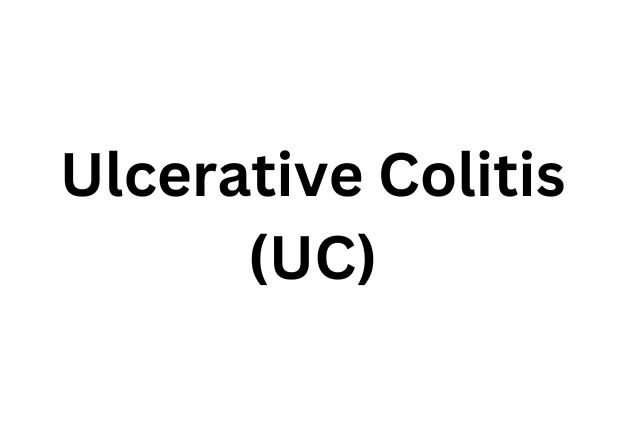Ulcerative Colitis (UC) is an inflammatory disorder that affects the lower gastrointestinal tract.
Known medically as Idiopathic Inflammatory Bowel Disease (IBD), UC strikes the colon with symptoms of rectal bleeding, bowel urgency, and diarrhea; inflammation in the area can be detected by endoscopy.
It is unknown what exactly causes UC, but theories suggest the trigger of an immune response by passage of a foreign substance through the colon, genetic predisposition, and imbalances in the intestinal microbe flora.
What is known is that this disease occurs more commonly in young people aged 20 to 40 and that the incidence of UC in developed nations is more frequent than in developing nations.
This latter statistic is attributed to the hygiene hypothesis which states that improved sanitation and reduced exposure to infections from an early age results in an underdevelopment of the immune system, potentially boosting the risks for attributed autoimmune diseases, such as asthma, allergies, leukemia, and ulcerative colitis.
Although treated with a variety of medications, inflammatory relapses occur in about 90% of the patients, making UC a chronic condition. Below is a brief description of the options available for the treatment of UC.
5-aminosalicylates
The first line of treatment for mild to moderate episodes of ulcerative colitis is oral or topical 5-aminosalicylates.
These limit the actions of immune system cells, thereby reducing inflammation. Ample support for the oral drug, mesalazine (up to 70% success rates of inflammatory remission) was made by a recent review of a collection of research studies on UC.
Possible side effects associated with mesalazine are headache, abdominal pain, nausea, vomiting, skin rashes, and diarrhea. Topical 5-aminosalicylates applied directly to the colon via enemas and suppositories are even more successful in treating UC (up to 80% remission).
Combining both oral and topical 5-aminosalicylates increases the treatment potency even further.
5-aminosalicylates like mesalazine and sulfasalazine are also the foundation of treatment even after remission has been achieved, although mesalazine specifically appears to be better tolerated than sulfasalazine.
Renal function should be monitored every 3 months with the use of these drugs.
Glucocorticoids
In more severe episodes of UC, which are characterized by at least 6 bloody stools per day, anemia, and signs of inflammation in areas of the body other than the colon, glucocorticoids are the more active treatment (up to 80% remission).
These steroid hormones act by inhibiting the processes of inflammation.
Caution and monitoring for side effects like infections, weight gain, hyperglycaemia, acne, excessive hair growth, hypertension, and bone loss are mandatory, especially for glucocorticoid use longer than 3 months.
Supplements, such as Calcium and Vitamin D may aid in the preservation of bone tissue, especially in patients over 65 years of age.
Densitometry bone scans provide information on the status of bones after 3 months of glucocorticoid use.
Biologics
Some severe cases of UC do not respond to treatment with glucocorticoids. Within 3 to 5 days of the absence of improvement, physicians recommend implementing anti-tumor biological agents like infliximab and adalimumab by injection (up to 60% remission).
Biologics are products naturally synthesized by microorganisms, plants, and animals, whereas traditional drugs are chemically designed.
Headache, nausea, vomiting, and joint and muscle pain are some possible mild side effects but, more dangerously, tuberculosis and lymphoma have also been observed.
Cyclosporin is another agent that shows success rates comparable to infliximab.
Immunosuppressants
Relapse and remission cycles of inflammation are the distinguishing characteristic of UC as a chronic disorder.
Often, medications such as azathioprine and mercaptopurine of the thiopurine class are prescribed, although studies with these do not generally demonstrate a very significant efficacy.
Adverse effects include bone marrow suppression, infections, liver damage, immune hypersensitivity, and even skin cancer.
A medical test for thipurin methyl transferase (TPMT) activity is necessary before commencing with thiopurines, to avoid bone marrow suppression. Some other effective immunosuppressants worth mentioning are tacrolimus and golimumab.
Surgery
A portion of UC patients exhibits frequent relapses in spite of pharmacological treatments.
Colectomy then represents the next logical step of treatment for about 10% of patients with UC. Studies show that patients who have undergone colectomy exhibit functioning comparable to people without UC, one year after the surgery.
As is the case with any surgical procedure, some potential complications such as reduced fertility rates in women, and pouchitis (a condition with increased stool frequency and urgency, incontinence, and nocturnal seepage) have been known to arise.
The latter is treated with antibiotics, such as metronidazole and ciprofloxacin, and probiotics, such as VSL#3.
Some additional medical information related to UC may be that:
- Patients are strongly advised to obtain vaccinations against herpes (varicella zoster), hepatitis B, influenza, pnemococcus, and human papillomavirus, as well as avoid tuberculosis skin tests or interferon-based tests while undergoing treatment with glucocorticoids, biologicals, or thiopurines.
- Routine check-ups for non-melanoma-type skin cancers are essential.
- Patients with UC are twice as likely to develop colorectal cancer. Surveillance is recommended to commence 10 years after UC symptom onset.
- Women with UC are more likely to experience spontaneous abortions in pregnancy, premature delivery, low birth weight, congenital anomalies, and birth by caesarean section. Thiopurines damage the fetus and must be discontinued in the 3rd trimester of pregnancy.
- Smokers exhibit less chances of developing UC than non-smokers.
- About 5% of all UC cases are actually misdiagnosed and really represent symptoms of Crohn’s disease.
If you’ve been diagnosed with ulcerative colitis, seek the help of a gastroenterologist to obtain more information.
References
Ford, A.C., Moayyedi, P., Hanauer, S.B. and Kirsner, J.B. “Ulcerative colitis.” British Medical Journal 346:f432. February 5, 2013.
Written by Julia Yusupova



